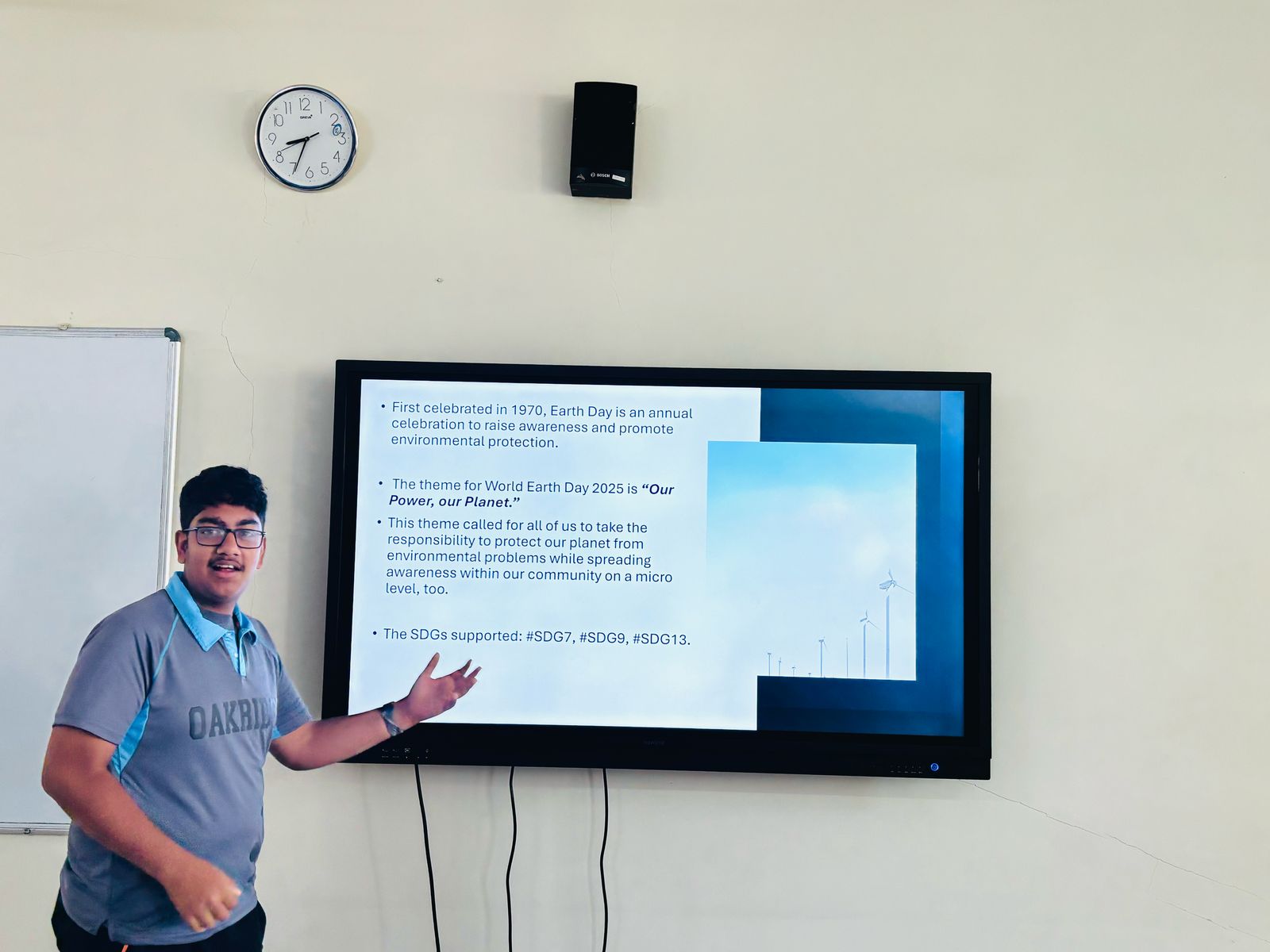How ATL Skills in the IB MYP Shape Independent and Lifelong Learners
- 8 April 2025

At Oakridge International School Bengaluru, students don’t just study subjects—they learn how to think, question, and take charge of their learning journey. A key pillar of the IB Middle Years Programme (MYP) is the development of Approaches to Learning (ATL) skills, which equip students with essential strategies to succeed academically and beyond. “ATL skills are at the heart of the IB MYP,” explains Ms. Indrani, an educator at Oakridge International School Bengaluru.
“They help students become self-regulated learners and true global citizens. These skills are essential not only for academic success but for life beyond school.” By fostering independence, critical thinking, and collaboration, ATL skills empower students to navigate challenges, explore new ideas, and develop a growth mindset—skills that prepare them for university and life in the real world.
ATL skills are structured into five key areas, each playing a vital role in student growth:
Thinking skills – Encouraging critical and creative thinking to solve problems effectively.
Social skills – Strengthening collaboration and teamwork to work effectively with others.
Communication skills – Enhancing verbal, written, and digital communication for clarity and confidence.
Research skills – Cultivating information and media literacy, enabling students to evaluate and use resources effectively.
Self-management skills – Developing time management, organization, and reflection skills for independent learning.
“Students start developing these skills in the IB Primary Years Programme (PYP), refine them in the MYP, and master them in the IB Diploma Programme (DP),” says Ms. Arshdeep, an educator at Oakridge International School Bengaluru.
“The MYP is process-oriented and concept-driven, where students take charge of their learning journey while teachers act as facilitators.” At Oakridge, these skills are not taught in isolation—they are woven into every lesson, project, and extracurricular activity, ensuring students apply them in real-world scenarios.
[IB Middle Years Programme Overview]
Teachers at Oakridge strategically embed ATL skills into their lesson planning, ensuring that students actively engage in critical thinking, research, collaboration, and reflection.
“At Oakridge, we take a hybrid approach to teaching ATL skills—both implicitly and explicitly,” says Ms. Arshdeep. “For example, in MYP Design, a teacher might explicitly guide students in critical thinking during the ‘Inquiring and Analysing’ stage. Later, students naturally apply that thinking when evaluating their design ideas.”
Beyond the classroom, Oakridge provides numerous platforms for ATL skill development, including:
Model United Nations (OakMUN) – Strengthening research, debate, and collaboration skills.
CodeFest – Enhancing problem-solving and analytical thinking.
LitFest – Encouraging creativity and communication.
MIT STEAM Challenges – Fostering interdisciplinary innovation.
Personal Projects – Allowing students to take ownership of their learning through independent inquiry.
A unique feature of Oakridge’s approach is the Global Campus platform, which connects students across Nord Anglia schools worldwide, fostering cross-cultural collaboration and shared learning experiences.
One of the most powerful applications of ATL skills is the Personal Project—a culminating research-based assignment for MYP 5 students, also known as the “Passion Project.”
“Students take on projects that reflect their personal interests, applying ATL skills in planning, research, and execution,” explains Ms. Indrani. “They showcase their learning by demonstrating three key criteria: Planning, Applying Skills, and Reflecting. It’s a true test of their independence and problem-solving abilities.”
Another example is the MYP Design ePortfolio, where students document their learning, track their progress, and refine their ideas based on feedback. “This structured framework encourages time management, self-reflection, and adaptability—skills that prepare students for future academic and professional challenges,” adds Ms. Arshdeep.
ATL skills do more than enhance academic performance—they equip students with the tools they need to thrive in an unpredictable world.
“ATL skills align with 21st-century competencies—the 4Cs: Critical Thinking, Collaboration, Creativity, and Communication,” says Ms. Indrani.
“These skills ensure our students are not only prepared for university but also for the ever-changing demands of the modern world.” By mastering effective communication, problem-solving, and digital literacy, Oakridge Bengaluru students enter higher education with a competitive edge.
“Our students become independent thinkers and self-motivated learners who make a positive impact on the world around them,” adds Ms. Arshdeep.
At Oakridge Bengaluru, ATL skills are more than just an IB requirement—they are the foundation for a lifetime of success.